Two Trees' Bjarke Ingels-Designed Williamsburg Towers Receive Approval From Community Board
Williamsburg’s Community Board 1 voted on Tuesday night to approve River Ring, the massive waterfront development proposed for the nabe’s waterfront — breaking with the “no” vote issued by the board’s land use committee last week.

Rendering by James Corner Field Operations and BIG-Bjarke Ingels Group
Williamsburg’s Community Board 1 voted on Tuesday night to approve River Ring, the massive waterfront development proposed for the nabe’s waterfront — breaking with the “no” vote issued by the board’s land use committee last week.
After a marathon six and a half hours, the full board voted “yes, with conditions” 20 to 15, with one abstention, bringing an end to a year of contentious meetings at the advisory body.
The purely advisory “yes, with conditions” decision gives the project the go-ahead from local board members, but only if developer Two Trees Management and the city can meet a long list of recommendations the civic panel agreed on based on public testimony, conversations with neighbors and internal deliberations.
The community board vote is simply a recommendation, and while it’s likely that Borough President Eric Adams will include some of their pleas in his advisory report next month, nothing is guaranteed.
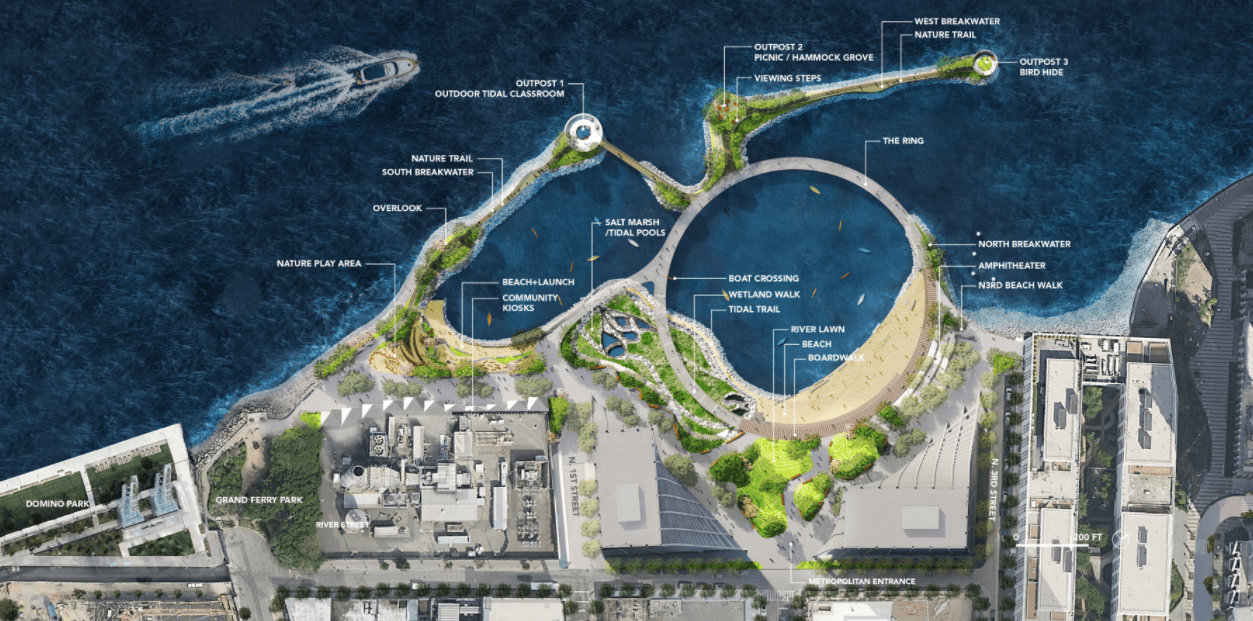
Those conditions, laid out in last week’s land use meeting, include cutting the number of apartments at River Ring — currently set at 1,050 — by 33 percent, to “reduce the anticipated increased load” on existing infrastructure, increasing the number of affordable units from 25 percent to 50 percent, and redesigning the two towers to be “significantly less obtrusive and oppressive in feel.”
Land use committee members voted “no, with conditions” 11 to 9, with some expectation that the full board would follow their lead — yet their concerns fell on deaf ears with the full board, which voted to approve the project, while maintaining many of the same conditions.
Affordable housing in Williamsburg
The major issue within the debate around River Ring has long been the topic of affordable housing. Current plans comply with the city’s Mandatory Inclusionary Housing rule, which requires at least 25 percent of units in new developments are affordable, meaning available for families making an average of 60 percent of the Area Median Income, or $46,620 for a family of three.
Cutting the size of the project by one-third, as the committee recommends, would bring the number of affordable units to 176. Increasing the number of affordable units from 25 to 50 percent would bring the number to 352 — more than is offered under the current proposal.
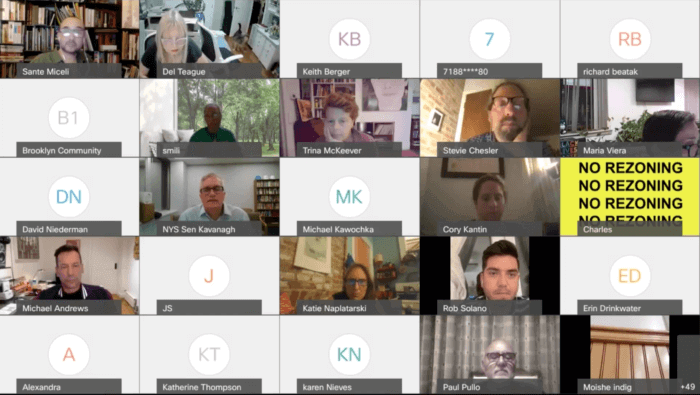
Two Trees spokesman Dave Lombino told Brooklyn Paper it’s unlikely that the project scale will be reduced significantly, and that while they are open to increasing the number of affordable units at River Ring, it would have to be “within reason.”
The committee also asked that Two Trees rent out the remaining affordable units at One South 1st Street, their luxury high-rise at Domino Park, “to honor prior community affordable housing commitments.”
Last year, Two Trees expressed frustration about state rent laws, particularly an update to 421-a that they said meant they couldn’t remove market-rate units from rent stabilization without also raising rents for affordable units.
As a result, Two Trees said they couldn’t rent out the 66 affordable units in the building at 80 percent AMI as they had planned, but would have to increase the rent to 130 percent AMI. The company said Albany needed to step in and adjust the law.
State Senator Brian Kavanagh, who chairs the senate committee on housing, said at the September 8 land use meeting that he disagrees.
“There’s been a perception that somehow a change in the law in Albany has prevented the tenanting of those units, and from my perspective, that’s simply not the case,” Kavanagh said. “We believe that Two Trees could live up to its promises for affordability. And just personally, I believe it’s really a tragedy that those units remain unoccupied for years now.”
Two Trees is in talks with the city and the Department of Housing Preservation and Development to get those units rented, Lombino said, either at 80 percent AMI as originally planned or at 130 percent.
As the full board meeting began, Churches United for Fair Housing, a Brooklyn-based housing organization lead by CB1 member Rob Solano announced its official opposition to River Ring, citing concerns that units available at 60 percent AMI are not truly affordable to Black and Latino residents, who earn 40 percent AMI on average.
Kendall Charter and Paul J. Pullo, both representing the Greenpoint YMCA, testified in favor of the project, advocating for expanded services available to children and adults at the new YMCA location. The board asked that Two Trees provide additional details to verify that the facility will serve its intended purpose, and that the new YMCA be open and operational before the building’s apartments are rented out.
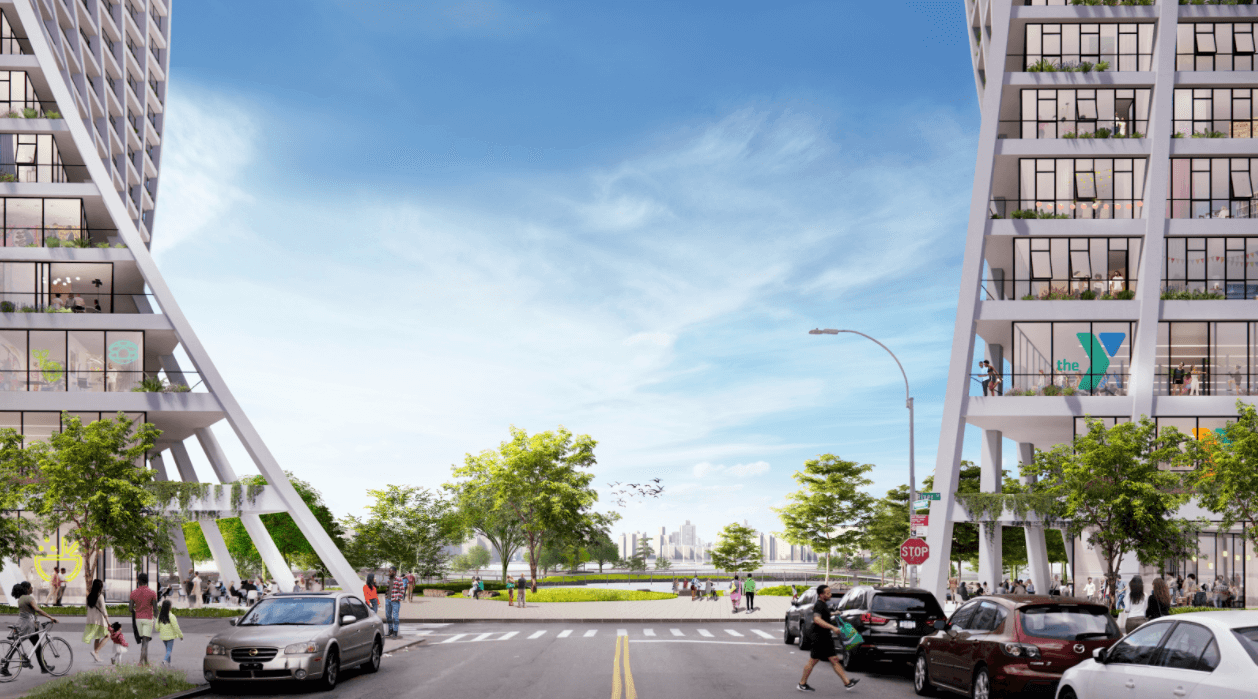
Many opposed to the project said they wanted more from Two Trees, or that they didn’t support the construction of new large towers on the waterfront, voicing concern that the neighborhood’s existing infrastructure won’t be able to accommodate an influx of new neighbors.
The board took up the vote just before midnight, when board member Tom Burrows made a motion to vote “no, with conditions,” following the land use committee’s lead.
Land use chair Del Teague addressed concerns that voting “no, with conditions” would put the board at a disadvantage in later conversations.
During the public comment session, one neighbor asked the board to vote “yes, with conditions,” saying that while nearby Community Board 8 voted down a new high-rise at 840 Atlantic Avenue, the project is moving forward anyway — without being able to put their conditions into an enforceable community benefits agreement, given the board’s disapproval.
Teague consulted representatives from the borough president’s office and from Council Member Steven Levin’s team, she said, asking if voting “yes, with conditions” or “no, with conditions” would ensure more serious consideration down the line.
“Both assured us that either way, the conditions would be looked at with equal weight,” Teague said. “Richard Bearak did further explain that when the conditions are a significant change, or a big ask, that often those proposals are made as ‘no, with conditions.’”
“We’re going to take [the conditions] seriously,” Lombino told Brooklyn Paper after the vote. “There’s some we can hopefully knock off sooner rather than later, and work our way through the rest. There’s no question there’s going to be additional affordability in this project.”
After the “no” vote failed, Toby Moskovitz, chair of CB1’s economic development committee and a prominent Brooklyn developer, made the motion for the “yes” vote. The approval ends the official role of the community board in River Ring’s development. Next up is the borough president’s office, which must issue a recommendation within 30 days. The office is holding a public hearing on September 27.
Editor’s note: A version of this story originally ran in Brooklyn Paper. Click here to see the original story.
Related Stories
- Locals Ask About Affordable Housing at Packed Hearing on Two Trees’ Latest Williamsburg Towers
- Local Community Groups Voice Tentative Support for Williamsburg Towers, With Some Caveats
- Massive Bjarke Ingels-Designed Williamsburg Development Kicks Off Public Review
Email tips@brownstoner.com with further comments, questions or tips. Follow Brownstoner on Twitter and Instagram, and like us on Facebook.


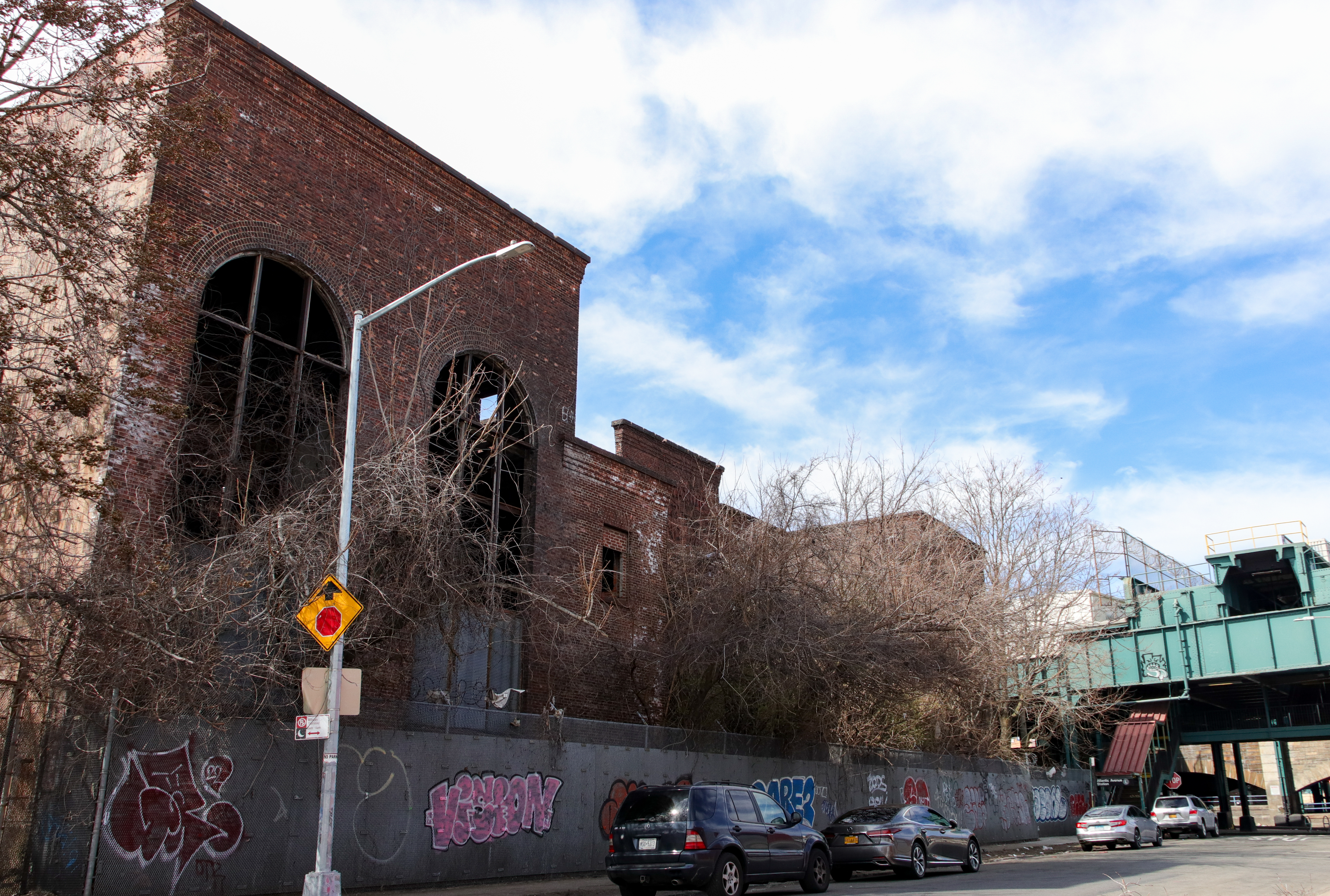
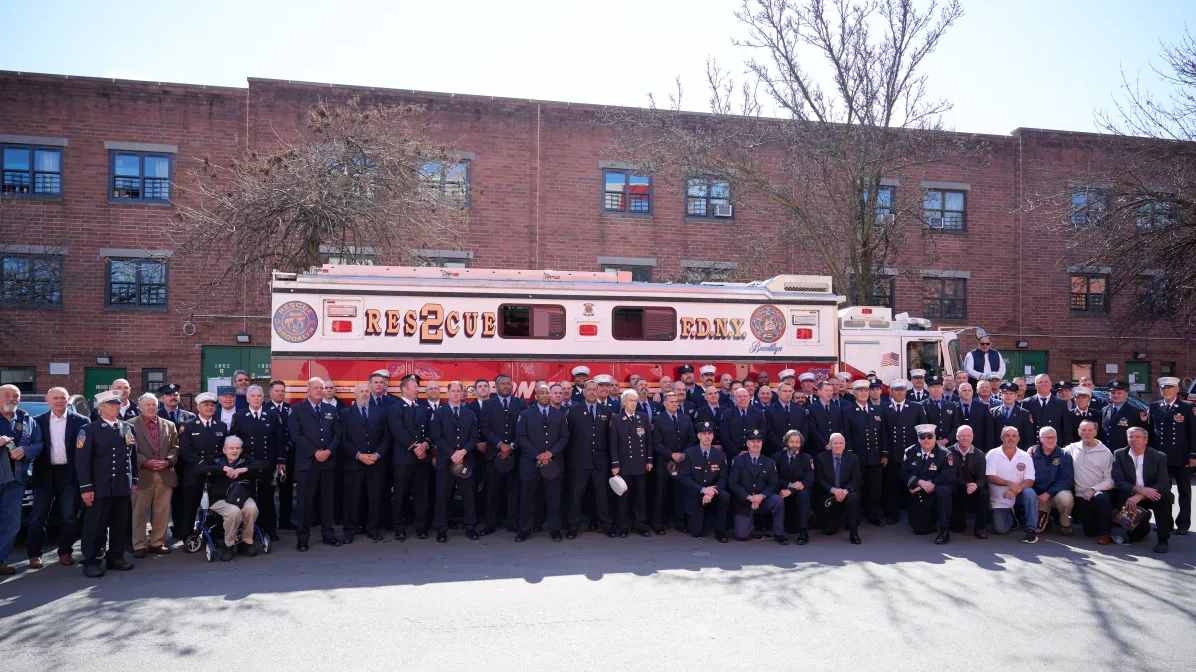
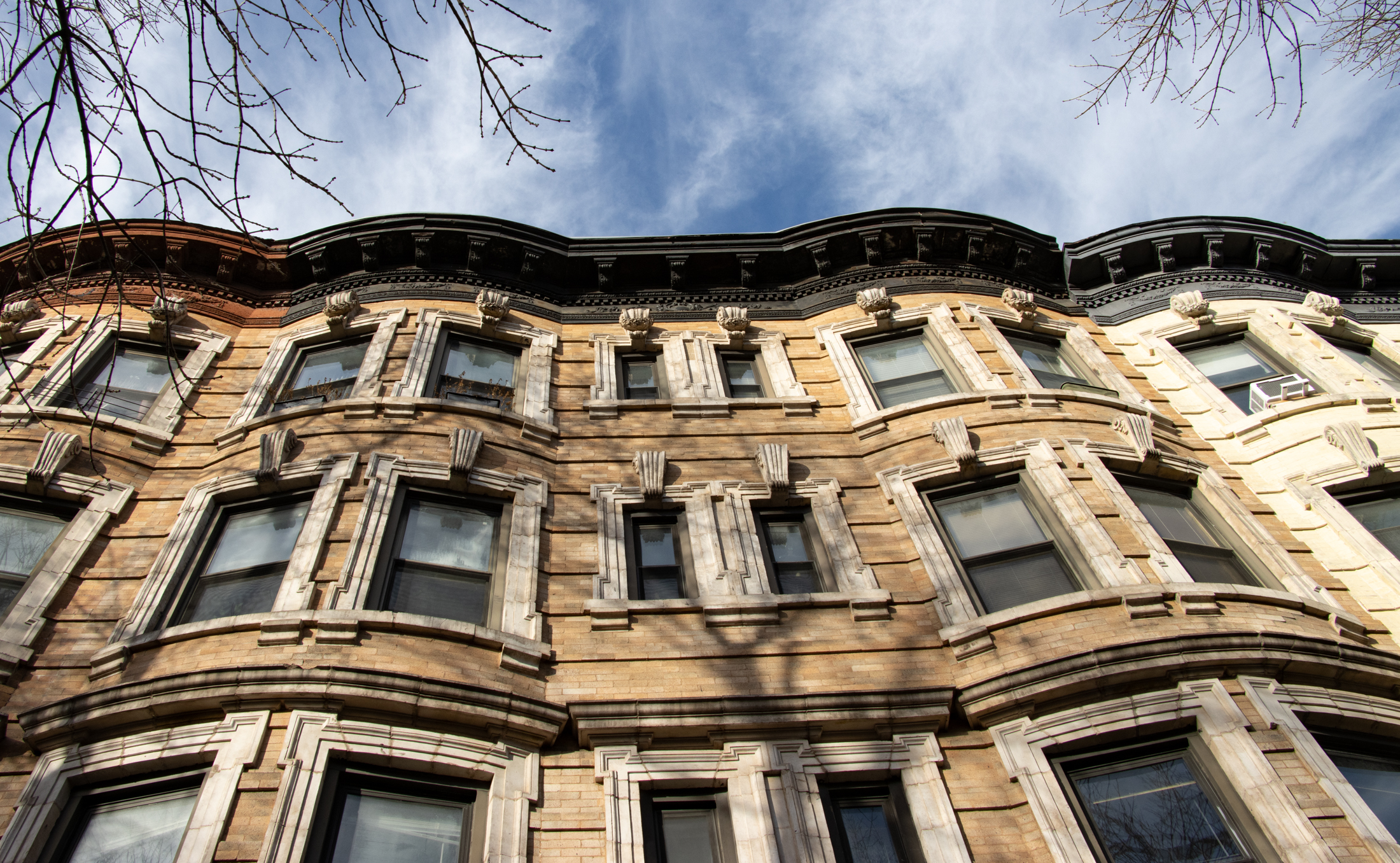




What's Your Take? Leave a Comment